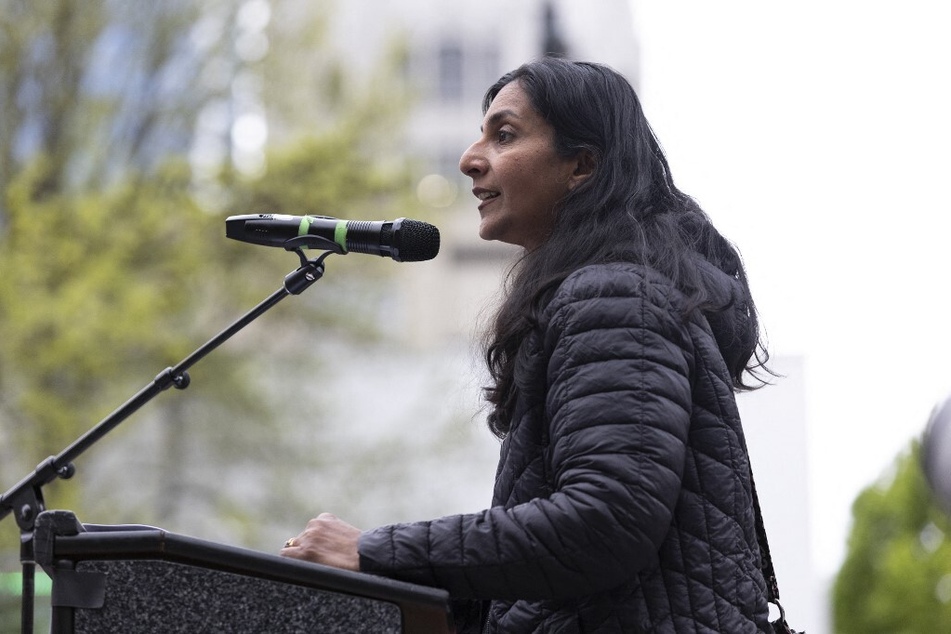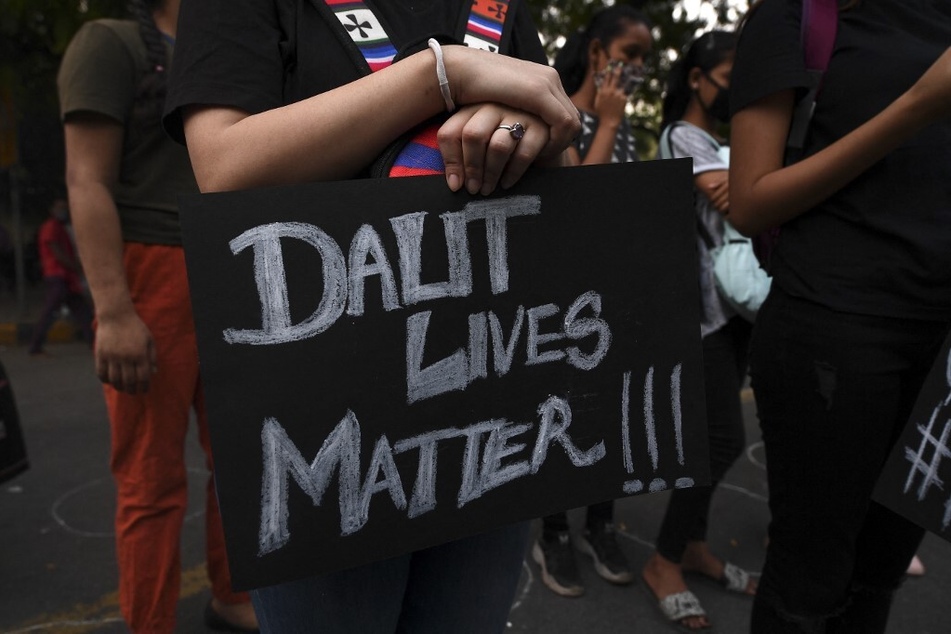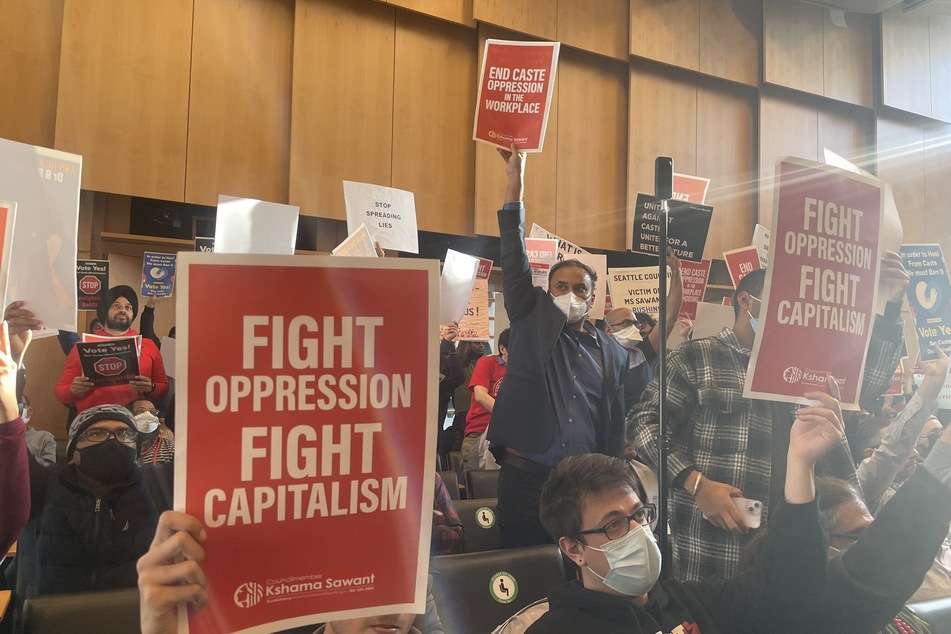Seattle becomes first US city to ban caste discrimination
Seattle, Washington - Seattle made history Tuesday as the first city in the US to expressly ban caste-based discrimination after an outpouring of input from South Asian Americans.

An ordinance introduced by District 4 Councilmember Kshama Sawant – Seattle's only elected socialist and the only Indian-American member of the council – added caste to the list of statuses protected under Seattle's existing anti-discrimination policies.
"This bill is not technically complicated, it's a very simple question: Should discrimination based on caste be allowed to continue in Seattle?" Sawant said Tuesday, noting that she hopes the decision will be a "beacon" for other cities to follow suit.
"While simple, it is also profound and historic," she added.
The council voted 6-1 to pass the ordinance, with at-large Councilmember Sara Nelson casting the lone vote against.
While Nelson said caste discrimination is "abhorrent," she voted against the ordinance citing a "reckless" potential for a lawsuit – specifically noting the likelihood of one coming from a "well-resourced" tech employer.
"Just because we can do something, doesn't mean we should," Nelson said.
South Asian Americans report caste discrimination in employment and education

Caste is a hierarchical system, stemming from Hinduism in India, assigned at birth in which the oppressed or Dalit are deemed "untouchables." While India officially banned the system, its influence is still felt in South Asia and by South Asians in America.
Though there are 150,000 Indians in Washington, before Tuesday's vote, someone who faced harassment or mistreatment based on caste would not be protected, while someone who faced gender, race, or age discrimination would be, its supporters argue.
While the US has never formally recognized the caste system, South Asians have faced discrimination within workplaces and higher education.
Hundreds of speakers testified about caste during public comment in Seattle over the last two weeks, a vast majority of whom supported the ordinance. Of the over 100 speakers who were allowed to weigh in Tuesday before council ended comment – after nearly an hour and a half, with hundreds of in-person and remote speakers unable to speak – about a dozen were opposed, or asked the council to postpone the vote.
Opponents of the ordinance argue that the ordinance would be discriminatory toward Hindus and that with more than 2,000 different castes, it's too complicated an issue to enforce.
Seattle residents weigh in on caste discrimination ordinance

Before the vote Tuesday, Sawant's office denounced the argument that the policy would harm Hindus, comparing the argument to Christians who claim same-sex marriage imposes on the religious rights of those who oppose it.
"Everybody understands this is a right-wing argument. Genuine progressives support freedom of religion, but also understand that that cannot be an excuse to abuse LGBTQ people or discriminate against them," Sawant's office said in a statement about the ordinance published before the vote.
Supporters compared the system to apartheid and slavery, pleading for council members to pass the ordinance.
"It is not complex to decide against discrimination," one speaker named Mohammed said.
"You don't need to determine caste, you only need to determine whether to be the leader for the rest of the nation and make civil rights history," he added.
Many of the Dalit or caste-oppressed individuals who spoke in favor of the ordinance withheld some or all of their names in public comment out of fear of retaliation. Groups ranging from religious organizations and higher education groups to the Alphabet Workers Union of Google employees spoke more freely in a joint letter sent to the city council.
"We oppose racism, Islamophobia, xenophobia, antisemitism, and other forms of hate and bigotry. We are troubled that caste-based discrimination is not currently prohibited under our anti-discrimination framework," the letter co-signed by more than 170 different organizations reads. "Like racism, casteism is a system of oppression; it is a very real – and growing – problem in our country and our local communities, but one that is not understood by most Americans."
After thousands of letters and petition signatures imploring the council to vote one way or another, the present members voted 6-1.
Cover photo: SAJJAD HUSSAIN / AFP

